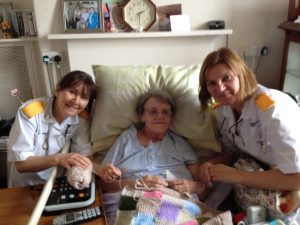There was anger, as vulnerable people had to fight through a system that should be there to support them because there’s no money for it ; amazement at the sacrifices families make 24 hours a day (to the point a husband was investigated for heart disease which turned out to be sheer physical exhaustion), and compassion at the love that empowered them. ‘She loves to hate me and I hate to love her,’ joked the husband driving his severely disabled wife out for a trip to the countryside.
But perhaps the saddest comment of all was from the carer who said that when people asked her what she did, she said she was ‘a carer – just a carer.’ Her expression said it all. Yet for the people she cared for she was a daily rescuer, a life-line!
The carer commented that ‘people are called to this work, it’s a vocation.’ And so it is. Some of our carers have been working in our homes for years. One comes to mind who has worked for 14 years in one of our homes, and in another, one only left after 25 years when her family had to move because her husband’s job was relocated.
It says a lot about our culture that we value celebrities more than carers. Yet God watches, and notes and rewards. Jesus makes that clear in Matthew 25:35-40.
On the same day as the Panarama programme, the D-Day Memorial Services were broadcast, and we saw some of the survivors honoured in a ceremony attended by the Royal Family and the President of the United States of America. When these old soldiers came on stage everyone stood, including Her Majesty the Queen. What Jesus said in Matthew 25 seems to be saying that’s how it will be for people who care for others; the handful shown on the programme and the thousands of others we’ll never see – but He does.















